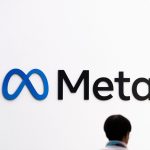
It’s been approximately a year since OpenAI released ChatGPT. Since then, seemingly every chief marketing officer and advertising talking head has chimed in about how revolutionary and transformative the underlying technology, generative AI, will be.
They could be right. So far, the advertising industry has looked to Silicon Valley, from startups to tech giants, to understand and utilize AI, agency execs told Marketing Brew.
This year, it seemed like pretty much every major agency holding company, from Omnicom to Dentsu to IPG, announced it was working with Google on AI initiatives. It makes sense, seeing as “Google helped put the T in ChatGPT,” Graham Wilkinson, chief innovation officer, product strategy and innovation, at the IPG Mediabrands agency Kinesso, told Marketing Brew.
“I think it’s a fairly safe bet that Google is going to do well in this space,” he said.
IPG began experimenting with the tech at least six years ago, and this year the agency partnered with Google Cloud to create two yet-to-be-released platforms that use Google’s generative AI technology. The applications are called BrandVoice AI, which is designed to draft content and images to be on-brand for digital ads, and BrandPortrait AI, which is designed to help media planners and strategists distill audience survey data and research using generative AI.
“We obviously have a lot of clients that are leveraging Google’s platforms for advertising,” Wilkinson said. “Having that data natively available in the same environment was important.”
Asking an AI chatbot to write a message in the style of a Linkedin post isn’t tricky, but asking it to create something that takes into account the voice, history, and even preferred typography of a brand is “an exceptionally complex problem,” he said—let alone a message with the intent to drive purchases, he added.
Partnering with the larger tech players gives agencies access to expertise and tech that has been vetted, something that is important given concerns “around liability and compliance,” explained Dave Meeker, EVP, head of design and innovation at Dentsu, which is working with Google and Google Cloud to build generative AI tools. With that said, he noted that some of those concerns are beginning to dissipate.
Get marketing news you’ll actually want to read
Marketing Brew informs marketing pros of the latest on brand strategy, social media, and ad tech via our weekday newsletter, virtual events, marketing conferences, and digital guides.
“We want to keep our clients out of any legal hot water by us leveraging tools or platforms that aren’t and haven’t gone through some sort of compliance framework,” Meeker said. “You need big scale; you need rigor; you need that protection.”
Dentsu is also using Microsoft’s Azure OpenAI framework to build tools the agency refers to as Dentsu GPT and Dentsu DALL-E. It also partnered with Salesforce to integrate its Merkle GenCX generative AI solution with Einstein GPT, Salesforce’s AI tool, allowing clients to glean insights from data.
“We’re starting to leverage the real capabilities of these platforms, but not at scale, because it’s just…too expensive,” Meeker said.
Dentsu’s own client base is growing more comfortable with the use of generative AI tools to assist in campaign development, he said, although the real differentiator will come from agencies that are able to leverage their own proprietary data and “build something unique on top of it.”
“I think that’s where you differentiate yourself, because everybody is going to be able to use Stable Diffusion and make images [quickly],” he added.
The unknown, currently, is how all this technology will impact billing. Some clients have the perception that if an agency is using generative AI to help with creative, that “means it’s gonna save us money,’” Meeker said. “Well, it doesn’t necessarily mean that. It also means that maybe we can do more, or God forbid, we can have some strategic conversations and actually talk to one another now.”
In October, Dentsu’s venture arm announced an investment in Inworld AI, a non-playable character (NPC) engine. While Inworld’s primary focus is gaming, Meeker said the company has already demoed the tech for advertisers and is gauging their interest, with a pitch that Inworld can create, essentially, a more interesting and detailed chatbot experience.
“Inworld is going to be big in the game space, but if it leads to our clients having a way to safely get their feet wet by leveraging generative AI…that makes sense,” he said.
Read the full article here









